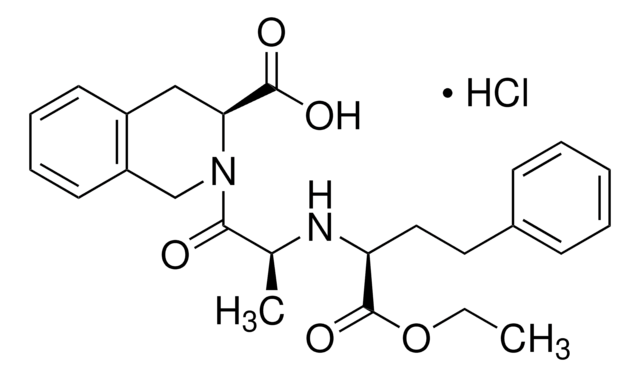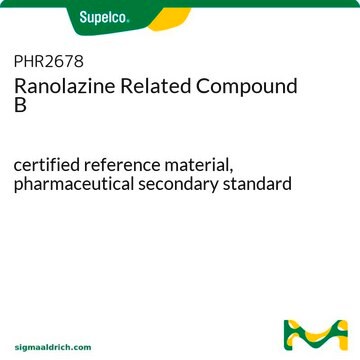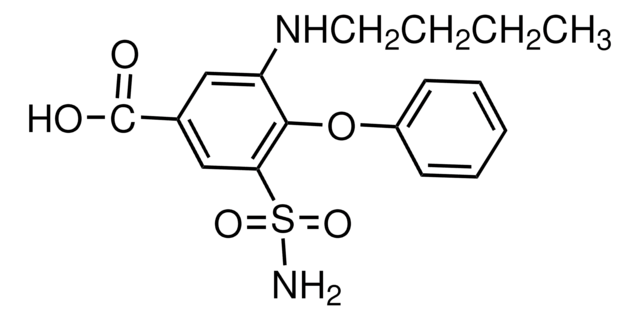Q0632
Quinapril hydrochloride
≥98% (HPLC), solid
Synonym(s):
(3S)-2-[(2S)-2-[[(1S)-1-(Ethoxycarbonyl)-3-phenylpropyl]amino]-1-oxopropyl]-1,2,3,4-tetrahydro-3-isoquinolinecarboxylic acid hydrochloride
About This Item
Recommended Products
Quality Level
assay
≥98% (HPLC)
form
solid
color
white
solubility
H2O: >10 mg/mL
storage temp.
2-8°C
SMILES string
Cl.CCOC(=O)[C@H](CCc1ccccc1)N[C@@H](C)C(=O)N2Cc3ccccc3C[C@H]2C(O)=O
InChI
1S/C25H30N2O5.ClH/c1-3-32-25(31)21(14-13-18-9-5-4-6-10-18)26-17(2)23(28)27-16-20-12-8-7-11-19(20)15-22(27)24(29)30;/h4-12,17,21-22,26H,3,13-16H2,1-2H3,(H,29,30);1H/t17-,21-,22-;/m0./s1
InChI key
IBBLRJGOOANPTQ-JKVLGAQCSA-N
Gene Information
human ... ACE(1636)
Looking for similar products? Visit Product Comparison Guide
Application
Biochem/physiol Actions
signalword
Danger
hcodes
Hazard Classifications
Repr. 2 - STOT RE 1
Storage Class
6.1C - Combustible acute toxic Cat.3 / toxic compounds or compounds which causing chronic effects
wgk_germany
WGK 3
flash_point_f
Not applicable
flash_point_c
Not applicable
ppe
Eyeshields, Gloves, type N95 (US)
Choose from one of the most recent versions:
Already Own This Product?
Find documentation for the products that you have recently purchased in the Document Library.
Our team of scientists has experience in all areas of research including Life Science, Material Science, Chemical Synthesis, Chromatography, Analytical and many others.
Contact Technical Service





